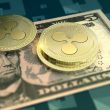Adoption certainly did not take a backseat despite the ongoing bear market in the crypto-verse. While the market witnessed the departure of several “tourists“, prominent firms continued to reside in the crypto town. Payments giant PayPal for instance was doubling down on its Bitcoin bet.
PayPal’s inclination towards the crypto industry is certainly not news. More recently, the firm revealed that it was broadening its crypto services as it was veering into Luxembourg. According to the payment giant, Luxembourg’s customers would be allowed to purchase, sell and hold crypto in their PayPal accounts. This list includes Bitcoin [BTC], Litecoin [LTC], Ethereum [ETH] as well as Bitcoin Cash [BCH]. These assets can be held through the website or PayPal’s mobile app.
This service will go live in Luxembourg in the next few days. Following this, eligible customers will be able to purchase crypto for as little as €1 on PayPal.
Customers will be asked to select from a range of pre-set purchase quantities or enter their desired amount. After which they should follow the on-screen instructions to buy the cryptocurrency of their choosing soon after this customers can buy cryptocurrencies with their PayPal balance, connected bank accounts, or debit cards issued in the EU. Users who decide to employ this new service to sell cryptocurrencies will instantly receive their money in their PayPal accounts.
But why is PayPal veering into Luxembourg?
As seen over the last couple of months, a slew of exchanges like Binance, Coinbase, and Gemini have been steering toward the European Union. Once the Markets in Crypto Assets [MiCA] rule takes effect, Luxembourg, where PayPal’s EU headquarters is located, may act as a gateway for the other 26 member states of the bloc.
Detailing its latest move, PayPal stated,
“Adding Luxembourg is an important step in PayPal’s mission to make digital currencies more accessible. We are committed to continuing to work closely with regulators and policymakers in Luxembourg to meaningfully contribute to shaping the role digital currencies will play in the future of global finance and commerce.”





